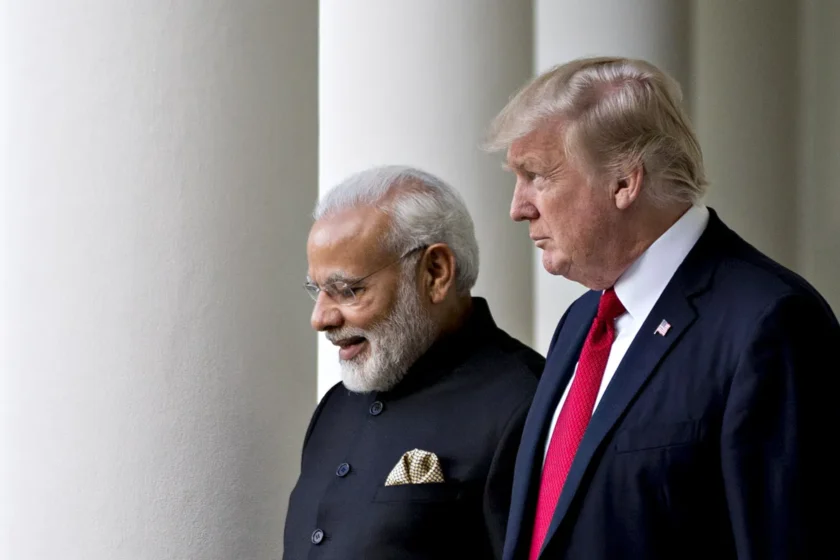Washington, D.C.: In a statement that could spark diplomatic ripples, U.S. Central Command (CENTCOM) Commander General Michael Kurilla has lauded Pakistan as an “unprecedented partner” in the fight against terrorism. Testifying before the House Armed Services Committee, Kurilla highlighted Islamabad’s role in countering the Islamic State-Khorasan (ISIS-K), calling the South Asian nation a “key contributor” in combating extremist threats along the Afghanistan-Pakistan border.
At a time when India is intensifying its global campaign to diplomatically isolate Pakistan following the April Pahalgam terror attack, General Kurilla’s praise comes as a notable shift in narrative. “They [Pakistan] are currently fighting terrorism and have been an exceptional counterterrorism partner,” Kurilla stated.
Kurilla also stressed the importance of maintaining strategic ties with both India and Pakistan, warning against viewing South Asia through a “zero-sum lens.” “We need to build relations with both countries,” he said. “Having ties with India does not mean we cannot have ties with Pakistan. We must evaluate each relationship on its own merit.”
India’s push to expose Pakistan’s cross-border terror operations has intensified since the April 22 Pahalgam attack that killed 26 people. In response, India conducted precision strikes on terror infrastructure in Pakistan-occupied Kashmir (PoK) on May 7, followed by a de-escalation agreement between both nations’ Directors General of Military Operations (DGMOs) on May 10.
Kurilla specifically praised Pakistan’s military chief General Asim Munir for cooperating on counter-ISIS-K operations. “Pakistan conducted dozens of operations targeting ISIS-K fighters,” he noted. “Their cooperation led to the capture of at least five top ISIS-K commanders, including Mohammad Sharifullah alias Zafar, a suspect in the 2021 Kabul Airport bombing that killed 13 U.S. troops and over 160 civilians.”
According to Kurilla, General Munir personally called him after the arrest of Zafar and expressed willingness to extradite him to the U.S. “He told me directly: ‘I have him. I’m ready to send him back. Please inform your Defense Secretary and President,’” Kurilla recounted.
Despite widespread criticism of Pakistan’s alleged harboring of terrorism, Kurilla acknowledged the heavy toll terrorism has taken within the country. Since early 2024, Pakistan has witnessed more than 1,000 terror incidents, resulting in nearly 700 security personnel killed and 2,500 civilian casualties.

The general’s remarks follow assertions by former U.S. President Donald Trump that America played a key role in facilitating a ceasefire between India and Pakistan. However, these claims have often drawn sharp denials from New Delhi. Indian officials have consistently asserted that any retaliatory actions against terrorism are a sovereign right, and not mediated by foreign powers.
In response to Kurilla’s comments, India is expected to maintain its firm diplomatic posture. Following the Pahalgam attack and subsequent “Operation Sindoor,” New Delhi dispatched bipartisan delegations to 33 global capitals, rallying support against Pakistan’s terror agenda.
Indian External Affairs Minister S. Jaishankar, during his recent Brussels visit, reiterated the nation’s zero-tolerance stance on terrorism. “We will not equate victims with perpetrators,” he said. In an interview with Politico, he warned that terrorism harbored in Pakistan would eventually harm the West too.
“If those responsible for the April atrocities continue their acts, they will pay a price,” Jaishankar stated. “We do not care where they are. Even if they’re deep inside Pakistan, we will respond.”
He also drew attention to the legacy of Osama bin Laden, who was found living in Abbottabad near a Pakistani military base. “This isn’t just about India and Pakistan. It’s about global terrorism. That threat will come back to haunt you,” Jaishankar cautioned.
As the global spotlight shifts once again to South Asia’s complex geopolitical theatre, Kurilla’s remarks underscore the difficult balancing act Washington must perform—between counterterrorism pragmatism and diplomatic alignment with key allies.









